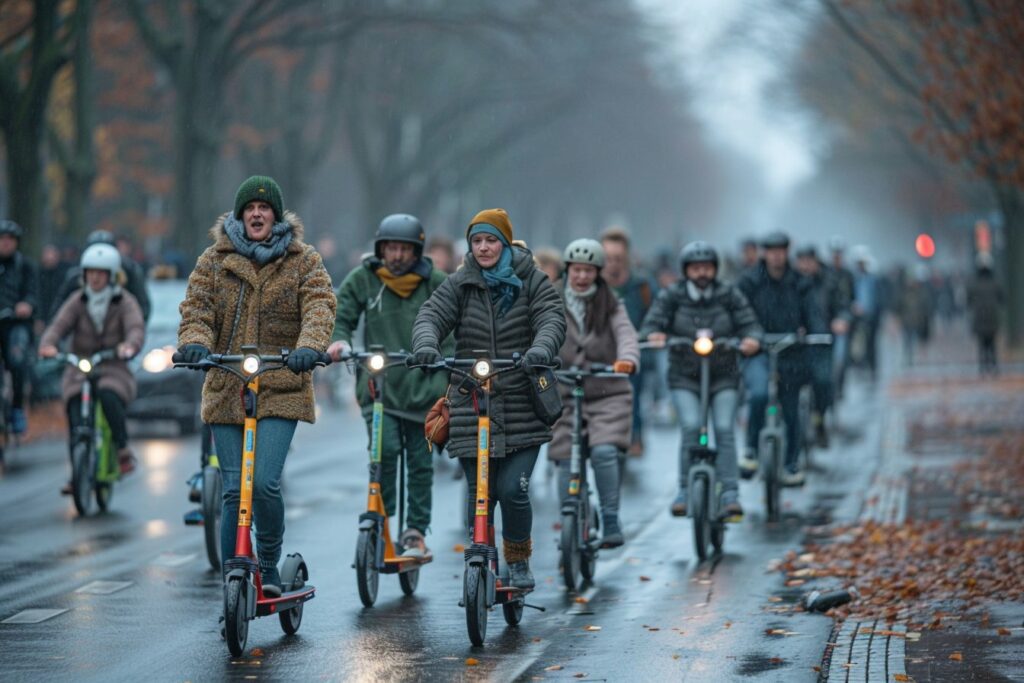Reasons behind the ban on electric scooters in Düsseldorf and Duisburg
Starting from March 1st, 2024, the neighboring cities of Düsseldorf and Duisburg in Germany have decided to ban electric scooters from their public transport system. This decision has been taken mainly due to safety concerns related to these devices, which have led to some critical incidents in other countries.
While accidents involving electric scooters are relatively rare, they can be quite serious when they happen – sometimes leading to dangerous fires and even casualties. Such incidents have gained massive media attention in places like the UK and Spain, causing panic among the general public.
Transport companies Rheinbahn and DVG, who operate in Düsseldorf and Duisburg respectively, have announced this ban after following recommendations by the German transport companies association VDV. According to them, the risks associated with electric scooters arise from insufficient safety measures and inadequate requirements for their production and usage.
The joint statement by Rheinbahn and DVG claims that the probability of a battery fire in electric scooters is significantly higher than that in other electric vehicles, making it necessary to implement such restrictions for the time being.
Is this ban permanent or temporary?
It’s important to note that the ban on electric scooters in the public transport systems of Düsseldorf and Duisburg is not an irreversible measure. Rheinbahn and DVG intend to permit the use of electric scooters again once manufacturers can guarantee that the risk of mishaps is eliminated. This means that if new safety standards are developed and implemented across the industry, electric scooters may regain access to public transport services in these cities.
Other cities with similar restrictions
The ban on electric scooters in Düsseldorf and Duisburg isn’t an isolated case, as similar policies have been implemented in other places around the world in response to safety concerns. For example:
- In Spain, electric scooters are no longer allowed on trains after a series of accidents.
- In the UK, certain cities have imposed restrictions on the use of electric scooters due to reported mishaps and their potential risk for pedestrians.
These measures highlight the growing importance of ensuring that such devices adhere to strict safety standards before they can be integrated into public transportation systems.
Taking preventive action to avoid incidents
By taking this firm stand against the risks posed by electric scooters, transport companies like Rheinbahn and DVG aim at preventing potential disasters in public spaces. This proactive approach towards passenger safety is crucial in maintaining confidence and trust among users of public transportation services, who otherwise might hesitate to utilize them if their wellbeing were deemed to be compromised by the presence of electric scooters.
What does this mean for the future of electric scooters?
The ban on electric scooters in the German cities of Düsseldorf and Duisburg may serve as a wake-up call for manufacturers and governments alike. It highlights the need for:
- Improved safety standards – Electric scooter manufacturers must invest in research and development to enhance the safety features of their products, reducing the risks associated with battery fires and other hazards.
- Stricter regulations – Governments should enforce rigorous requirements for the production and usage of electric scooters, ensuring that only safe and reliable models make it to market.
- User education and awareness – Consumers should be made aware of the potential risks involved in using electric scooters, and encouraged to prioritize safety when selecting a model or riding these devices.
In conclusion, the ban on electric scooters in Düsseldorf and Duisburg has brought much-needed attention to the safety concerns surrounding these popular devices. It remains to be seen how manufacturers and regulatory bodies will respond to these developments so as to ensure that electric scooters can safely coexist with other forms of public transportation.


